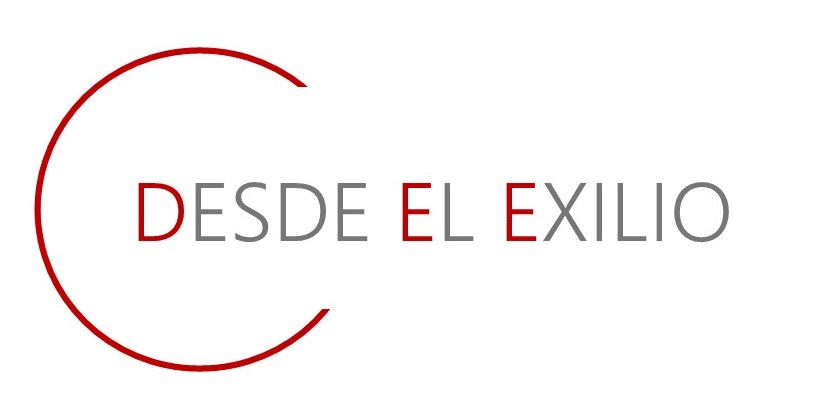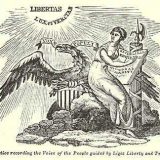Poco a poco la desinformación gubernamental, la inoperancia de la cominsión del 11M y la machaconería de los informes de «El Mundo» y otros medios han ido haciendo mella en las opiniones de los observadores foráneos. Si a eso le añadimos que en la red cada vez son más quienes opinan que SEGUIMOS SIN SABER, y cada vez más quienes aportan datos nuevos, no es de extrañar que leamos cosas como ésta:
Spain’s “Terrorgate”?
Investigating 3/11.
It has long been understood that the Spanish socialists shamelessly exploited the March 11, 2004, terrorist attacks in Madrid’s train station for political advantage. They did so with palpable disregard for a frightening fact: The far-reaching geostrategic repercussions of that incident — which vaporized the ruling conservative party’s electoral lead just days before the polling — gave those seeking similar results elsewhere every incentive to engage in violence against other democracies’ electoral processes.
But what if the perpetrators were neither Islamofacists, as the winning socialists immediately asserted, nor the Basque terrorist organization known as ETA, as the government of José Maria Aznar initially (and fatally) assumed?
On May 16, the Madrid daily El Mundo published a remarkable editorial that draws upon the paper’s ongoing investigation and contains information potentially as explosive as the 3/11 attacks themselves: El Mundo suggests that, almost immediately after the 12 bombs went off in one of the city’s busiest train stations, some in the Spanish police force fabricated evidence, then swiftly hyped it to the domestic and international press. The object seems to have been to support the oppositions’ claims that Islamists angry over the government’s support for the war in Iraq were responsible for the attacks.
At worst, the information uncovered by El Mundo could mean that the deadly bombing was actually perpetrated with the complicity of the same Spanish police bomb squad, Tedax, that was subsequently charged with investigating the crime.
Either way, if the leads published in recent days pan out, it would appear that Spain’s 2004 elections were stolen by terrorists, alright. But the terrorist operation that brought the socialists to power may have been an inside job — in effect, a coup perpetrated by some of the same authorities who are responsible for preventing terror. Explosive stuff, if true. But all preliminary and speculative right now.
A blogger who writes under the name of Franco Alemán has helpfully interpreted and called the English-speaking Internet’s attention to Monday’s article written by El Mundo’s Fernando Múgica. Highlights include the following:
Questions have been raised about the actual provenance of a knapsack dubbed “Backpack 13” and its contents (plastic explosive, a cell phone used as a trigger, and nails and bolts that would act as shrapnel to maximize the bomb’s destructive effect). Shortly after the 3/11 attack, ABC News showed what it claimed as “exclusive” footage of both the purported backpack and its unexploded innards. Alemán’s posting says:
According to reporter Fernando Múgica in the Spanish daily El Mundo. According to Múgica, at a Madrid police station “the officers wanted to help the ABC reporters, but when the camera crew came, they didn’t have the backpack that had contained the bomb there, so one of the officers showed them a similar backpack which was the property of another officer.” Said Mugica, “I don’t know whether the network knew this or simply accepted that the bag they were shown was the real one.”
Alemán says the journalistic investigation revealed that “the Tedax officers hid for three months [from] the investigating judge that an X-ray done to the real (not to the [one] staged for ABC) backpack showed that there was no way it could have ever exploded since it had unconnected cables. Something odd, since it had always been said that the bombers were technically proficient.”
It seems that a phonebook belonging to Carmen Toro, allegedly one of the men who supplied the explosive used in the 3/11 attacks, contained the cellphone number for Tedax’s chief. What is more, Alemán’s posting incredulously recounts how, “When the investigating judge called the number, a chief’s aide answered the phone and said that it belonged to one of the guys in the squad, ‘who used the boss’ name as a nickname.’”
The claim that the Aznar government wrongly — and for political reasons — initially blamed ETA for the attacks rests on two propositions derived from Backpack 13’s contents: The nature of the explosive and evidence associated with its cellphone trigger.
The type of explosive found in the alleged bombers’ backpack was a plastic known as Goma 2 ECO, rather than the Tytadine that ETA had employed in its prior attacks. Alemán notes, however, that “the conclusion that the exploded backpacks had Goma 2 ECO in it was made because of what was found on the unexploded one — not on actual forensic analysis of the explosion site, since apparently once it’s gone off it’s absolutely impossible to know for sure, [since] both Goma 2 ECO and Tytadine [are] two brands of generic dynamite.”
The phone provided three pieces of incriminating evidence. First of all, on it were found to the fingerprints of one Jamal Zougam, the ringleader of the Islamist “Lavapies” cell now blamed for the Madrid attack.
Second, the phone was supposed to be activated by its alarm and then vibrate, causing the plastic explosive to detonate. Since the bombers apparently made a novice’s mistake by failing to connect the wires from the phone to the explosive with electrical tape, even the slightest movement of the backpack would likely prevent the cellphone’s signal from setting off the bomb.
Even more curious is the fact that the phone in the Backpack #13 was a Mitsubishi Trium, one of very few on the market that require a SIM card to operate the alarm. Since, as Alemán notes, “it was the analysis of the SIM card which, less than 48 hours after the blasts, allowed the police to arrest the alleged perpetrators,” the question occurs: Why would terrorists who owned a cellphone shop and are deemed to be very technically proficient deliberately choose to use a device that would lead the police to their door?
Speaking of cellphones, the Alemán blog titillates readers by offering further details from the unfolding El Mundo investigation. He reports that:
Cellphones used for March 11 were unlocked in a phone shop owned by… a Spanish police officer. And not just any police officer: It was Maussili Kalaji, a Syrian born citizen who had been granted Spanish citizenship several years ago and entered the police department when he arrived in Spain [despite] his past as an Al Fatah member and as an agent for the Soviets’ intelligence services.
Apparently as soon as [Kalaji] left the [Spanish] police academy, he was assigned to infiltrate extremist groups and so he got acquainted with such nice guys as Abu Dadah, currently under trial for the 9/11 plot and who will be on trial again in the future for his role on March 11. He also was assigned to the security detail of Judge Garzón, now on leave and teaching at a New York university — who insisted that, no matter what Aznar was saying on March 11, he knew from minute 1 that…the bombings had been by Islamic terrorists, not ETA. I think we know now why.
And that’s not all: Kalaji’s sister was the translator for the police in charge of translat[ing] the wiretapped conversations between the alleged March 11 culprits before the bombings. And his ex-wife, also a police officer, was the first to arrive at the scene where another key [piece of] evidence pointing to Islamic terrorists and not ETA was found: a white van with detonators and some tapes with Koranic verses. Socialists blame Aznar’s government for hiding this but, of course, maybe its guys got there first….
The evidence presented thus far by El Mundo is, to be sure, inconclusive. Yet, it strongly suggests that at least some in the Spanish police may know considerably more about who was really behind the 3/11 bombings — attacks that undid the electoral fortunes of the Spanish government, brought to power socialists hostile to its most important domestic and foreign policies and precipitated changes in those policies that could only encourage terrorists to interfere in elections elsewhere.
Given the stakes for Spain, for its relations with the United States, and for the democratic world more generally, there should be few higher priorities than getting to the bottom of what may be Spain’s Terrorgate. As the current Spanish government might have reasons for resisting a no-holds-barred investigation, and those in Washington anxious to foster improved bilateral ties may be reluctant to press for one, it may fall to the sorts of citizen-activists and bloggers who thwarted Dan Rather’s notorious attempt to hijack America’s exercise of democracy in 2004 to find out precisely what happened to its Spanish counterpart.
— Frank J. Gaffney Jr. is president of the Center for Security Policy and a contributing editor to NRO.
Original en NRO Online, via Internet Opina
Ayer ya lo podíamos leer via Barcepundit English de Franco Alemán (Feliz cumpleaños otra vez)





Al principio todo eran casualidades pero cada vez esta mas claro : el PSOE esta implicado en los atentados y tarde o temprano se sabra,lo malo es que como tarde mucho España va a quedar hecha un asco en manos de esta gentuza,
Creo que desde el exterior (UE, USA) se deberia presionar para poder llegar a la verdad cuanto antes y desenmascarar a los verdaderos asesinos y manipuladores
Lo publica hoy El Mundo. Desde octubre de 2002 hasta febrero de 2004 (un mes antes de la matanza), Abdelkader el Farssaoui, imán de la mezquita de VIllaverde, mantuvo informada a la policía española sobre lo que El Egipcio, El Tunecimo y Mustafá Maimouni andaban tramando. La policía llegó a saber hasta los números de los teléfonos móviles de los terroristas. El juez Garzón intervino los mismos pero no hizo mucho más, incluyó la conversaciones interceptadas en un sumario posterior al 11-M y ahí se quedó la cosa.
Cada día sobran más motivos para pensar que es muy poco lo que aún se conoce de una trama criminal que tuvo su fatal desenlace a primera hora de la mañana del 11 de marzo. Felicidades, una vez más, al diario El Mundo por seguir un caso que ha sido practicamente deshauciado en el Parlamento. Los diputados deberían tomar nota porque queda mucho por investigar.
Sí, una Z que autorizó personalmente las manifestaciones en los días de reflexión y que nunca ha condenado. Z, pero sarnosa.
Jose María, muy bueno lo de la X y la Z
En la época del GAL todos sabíamos quién era la X, ¿estamos ante una Z?
Interesantísimo. Creo que ZP debería empezar a preocuparse. Ahora se entiende la preocupación del siniestro Montilla por los bloggers. Unos indocumentados. Por eso quieren ponernos carnet; sobre todo en la boca…